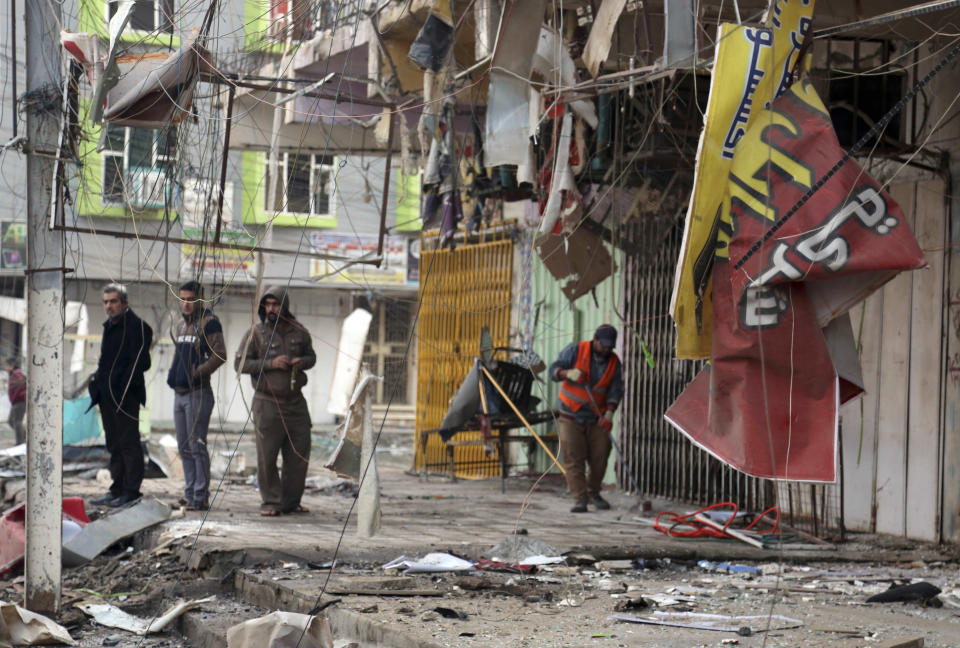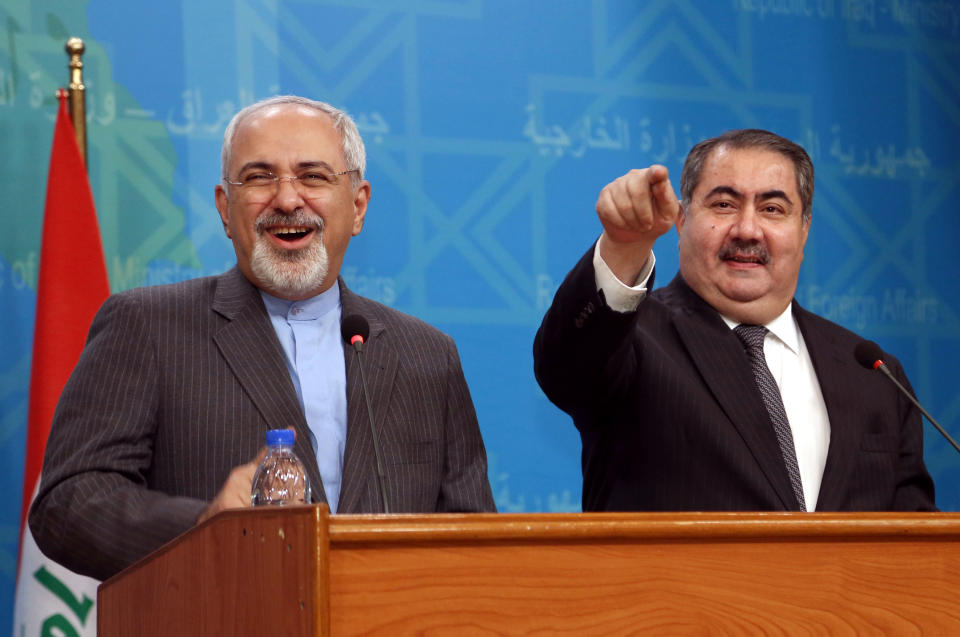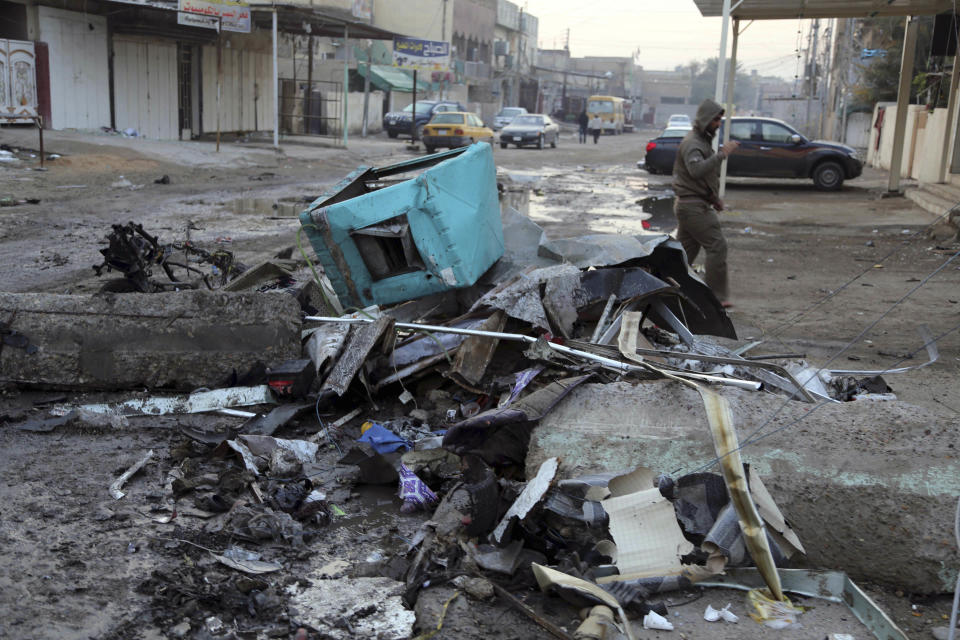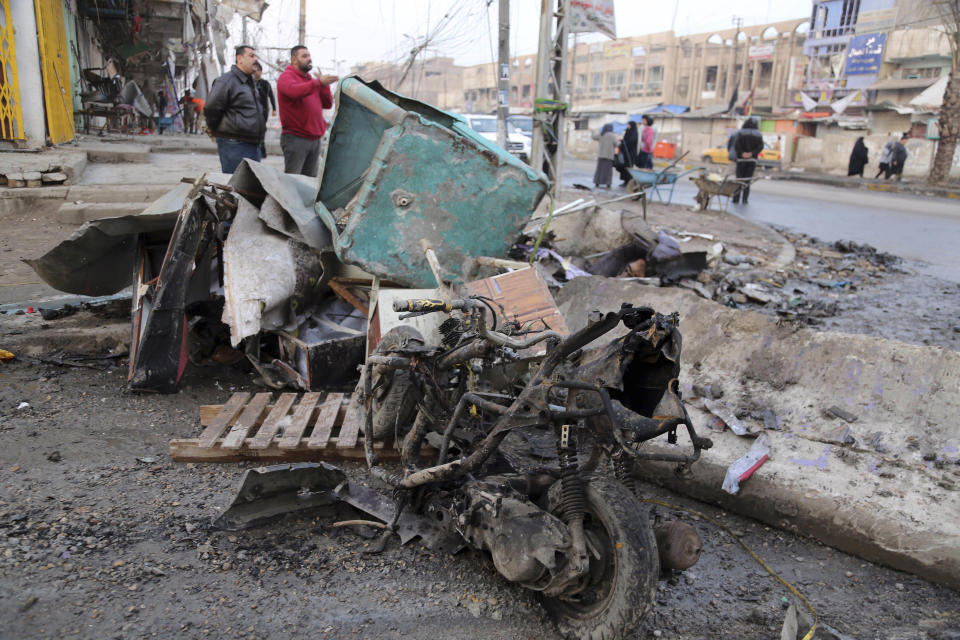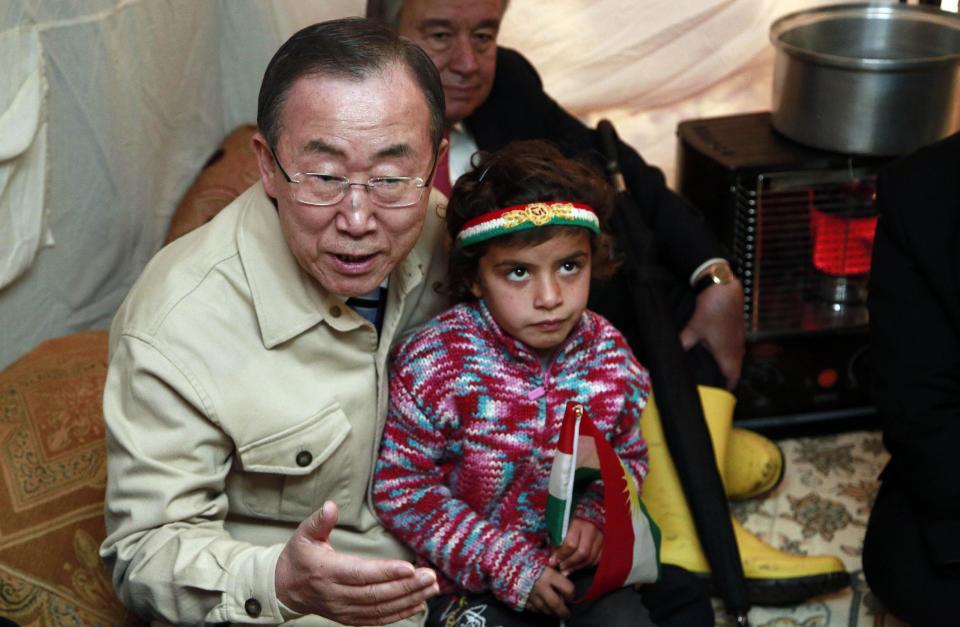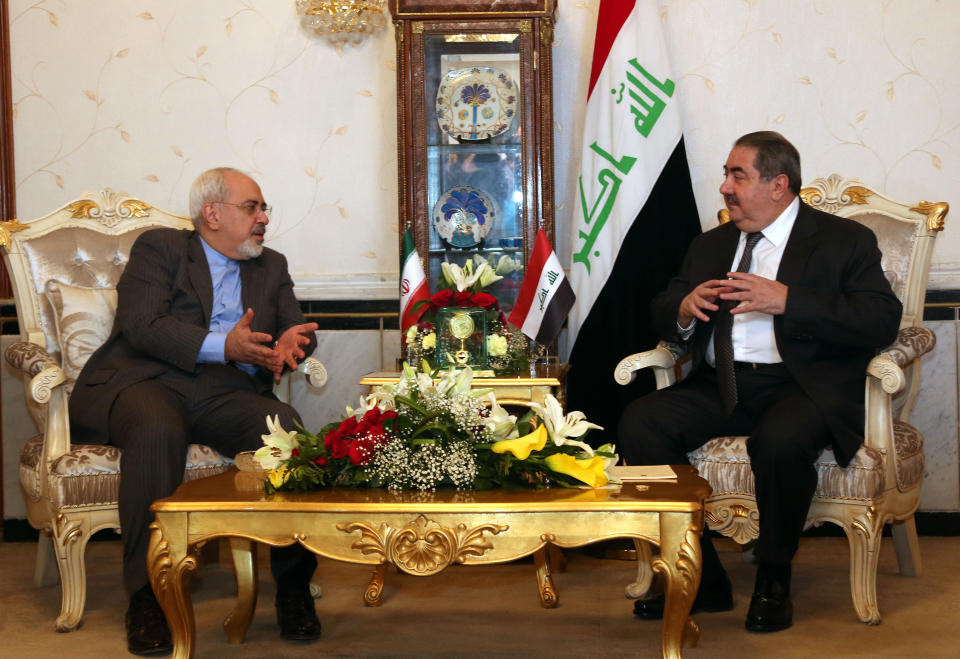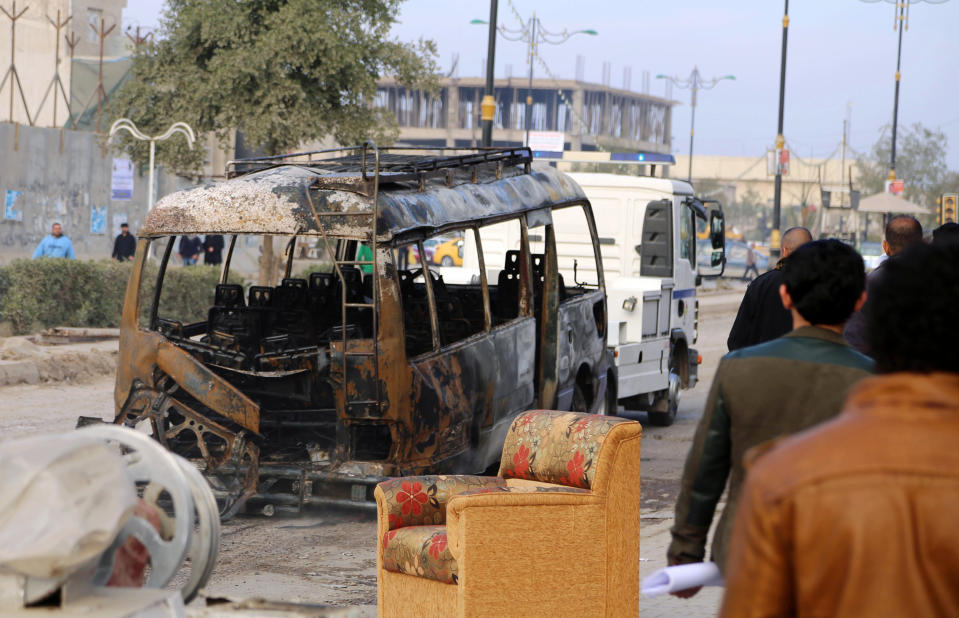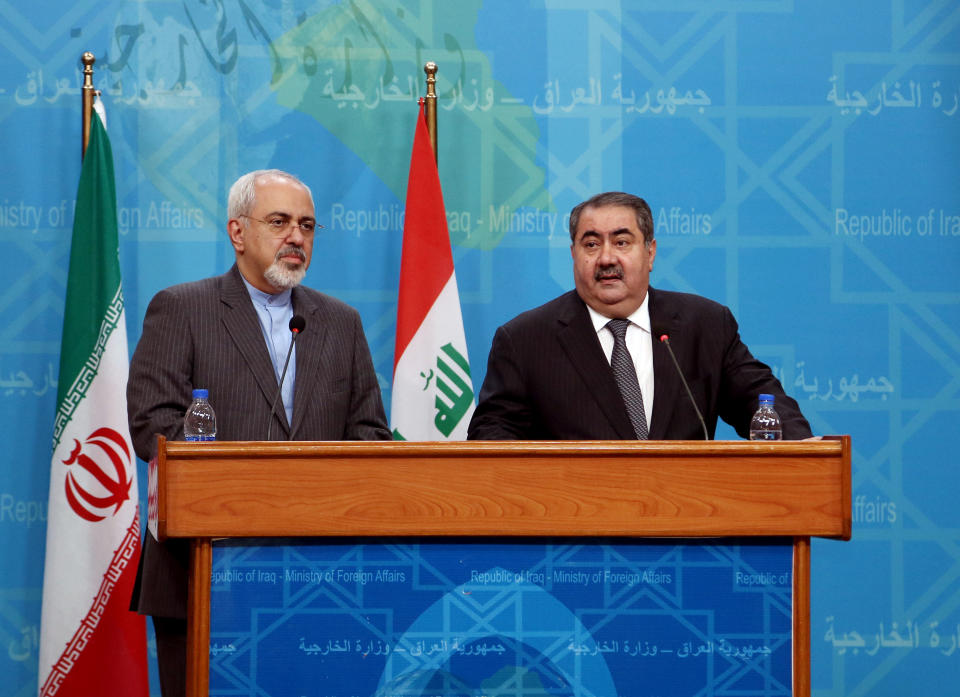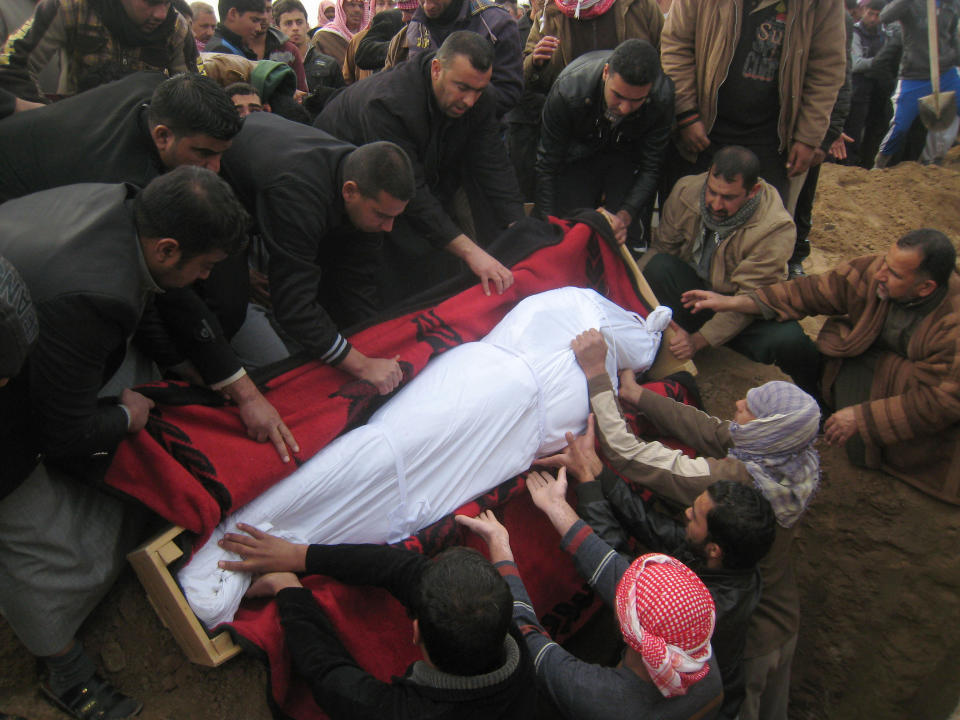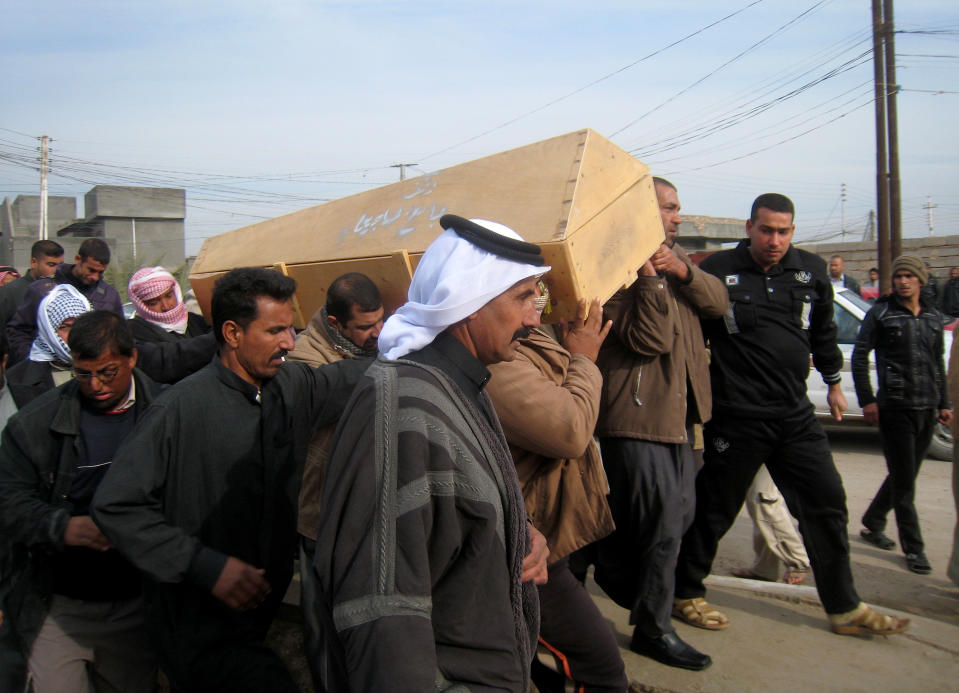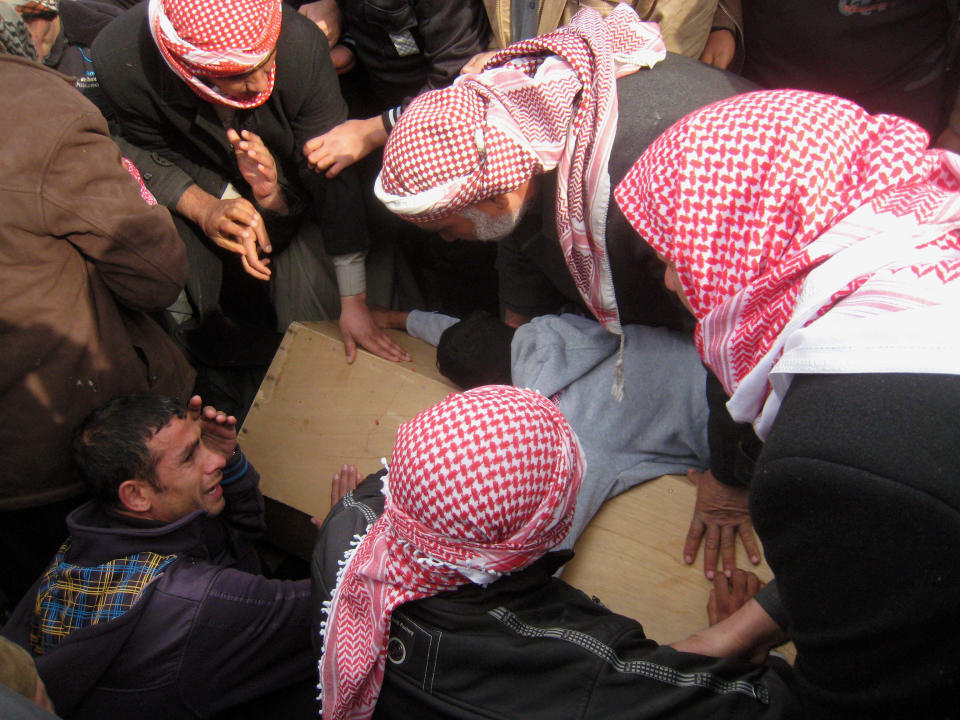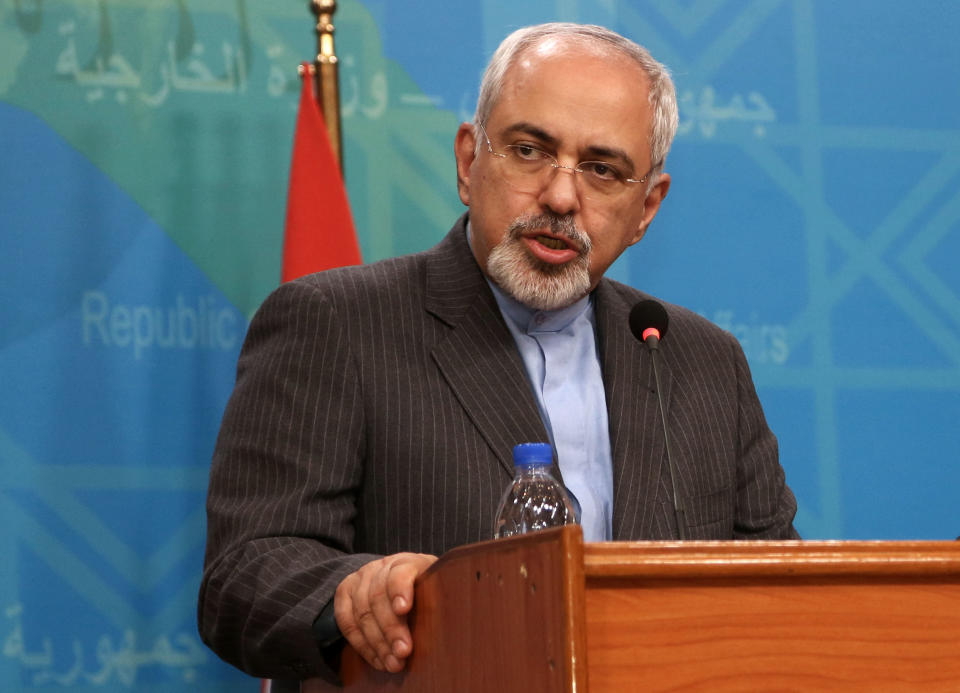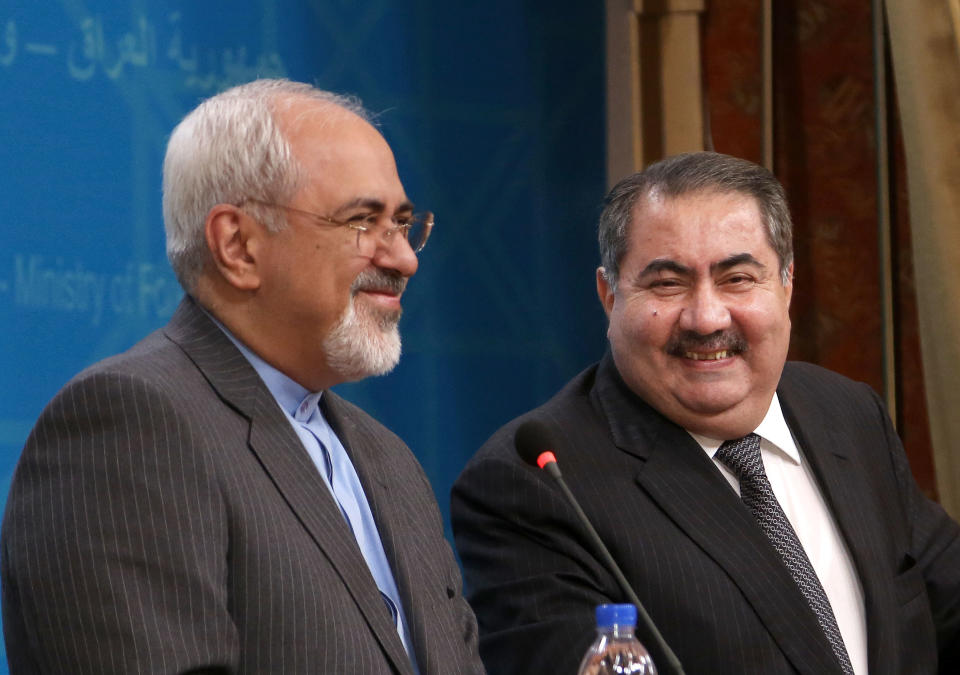Attacks kill 19 in Iraq as Iranian diplomat visits
BAGHDAD (AP) — Bombings and shootings killed at least 19 people in and around the Iraqi capital on Tuesday, as Iran's foreign minister visited the neighboring country amid a backdrop of increasing violence in a restive western region.
Iran has been watching the unrest in Anbar province with alarm, since it shares U.S. concerns about al-Qaida-linked militants taking firmer root in Iraq. It has even offered to supply military equipment and advisers should Baghdad ask.
"We support Iraq in its war against terrorism," Foreign Minister Mohammed Javad Zarif told reporters at a joint news conference with his Iraqi counterpart. "We have always stood with the Iraqi people in their war on terrorism."
Violence has been on the rise in Anbar as security forces and allied Sunni tribesmen battle al-Qaida fighters over the control of two key cities there. At least 244 people have died in fighting across the country so far this month, according to an Associated Press count.
Tuesday's violence however centered on the capital, Baghdad, where gunmen killed a judge and his driver in a drive-by shooting in the morning, police said, and other violence upped the body count throughout the day.
A sticky bomb attached to a mini-bus exploded in the afternoon in the Shiite neighborhood of Sadr city, killing three passengers and wounding eight.
In northern Baghdad, a roadside bomb missed a police patrol but killed one civilian and wounded six.
Later on, gunmen in a speeding car sprayed an army checkpoint in the western suburb of Abu Ghraib with bullets, killing two soldiers and wounding two others.
In the evening, a car bomb blast in a commercial street in Baghdad's Ghazaliyah district killed six and wounded 16. Also in Ghazaliyah, a second car bomb blast killed two people and wounded six others, while another car bomb killed three and wounded seven in a northeastern suburb.
The figures were revealed by police and hospital officials who spoke on condition of anonymity because they were not authorized to talk to the media.
Zarif's visit to Baghdad aimed ostensibly at discussing the war in Syria with Iraqi officials in hopes of coming up with proposals ahead of peace talks scheduled to start Jan. 22 in Switzerland.
At the news conference, he said he hoped the Geneva talks would yield "positive results" and ease the suffering of the Syrian people.
Following his departure from Iraq, Zarif headed to neighboring Jordan on a rare visit.
The Royal Palace issued a statement saying King Abdullah II discussed the Syrian civil war and developments in Palestinian-Israeli peace process with Zarif behind closed doors.
It quoted Abdullah as calling for a "comprehensive political solution" to the Syrian crisis, while it said Zarif said Tehran sought to "consolidate relations" with Jordan.
Iranian officials make rare visits to Jordan, a vocal critic of Tehran. Like other Sunni Muslim countries in the oil-rich Gulf, Jordan is concerned of the growing regional influence of Iran, which adheres to the rival Shiite sect of Islam.
Back in Iraq, U.N. chief Ban Ki-moon visited the Kawrgosik camp for Syrian refugees near Irbil city in Iraq's Kurdish autonomous region.
Ban expressed his deep sadness over the suffering and the hard conditions the refugees are living in.
"I am particularly saddened to see so many young children and women and vulnerable groups who suffer from this man-made tragedy," he added.
The Syrian conflict began in March 2011 with largely peaceful protests against Bashar Assad before shifting into an armed insurgency after a brutal government crackdown. It has killed more than 120,000 people, forced more than 2 million to flee the country and devastated the nation's cities, economy and social fabric.
___
With reporting by Jamal Halaby in Amman
